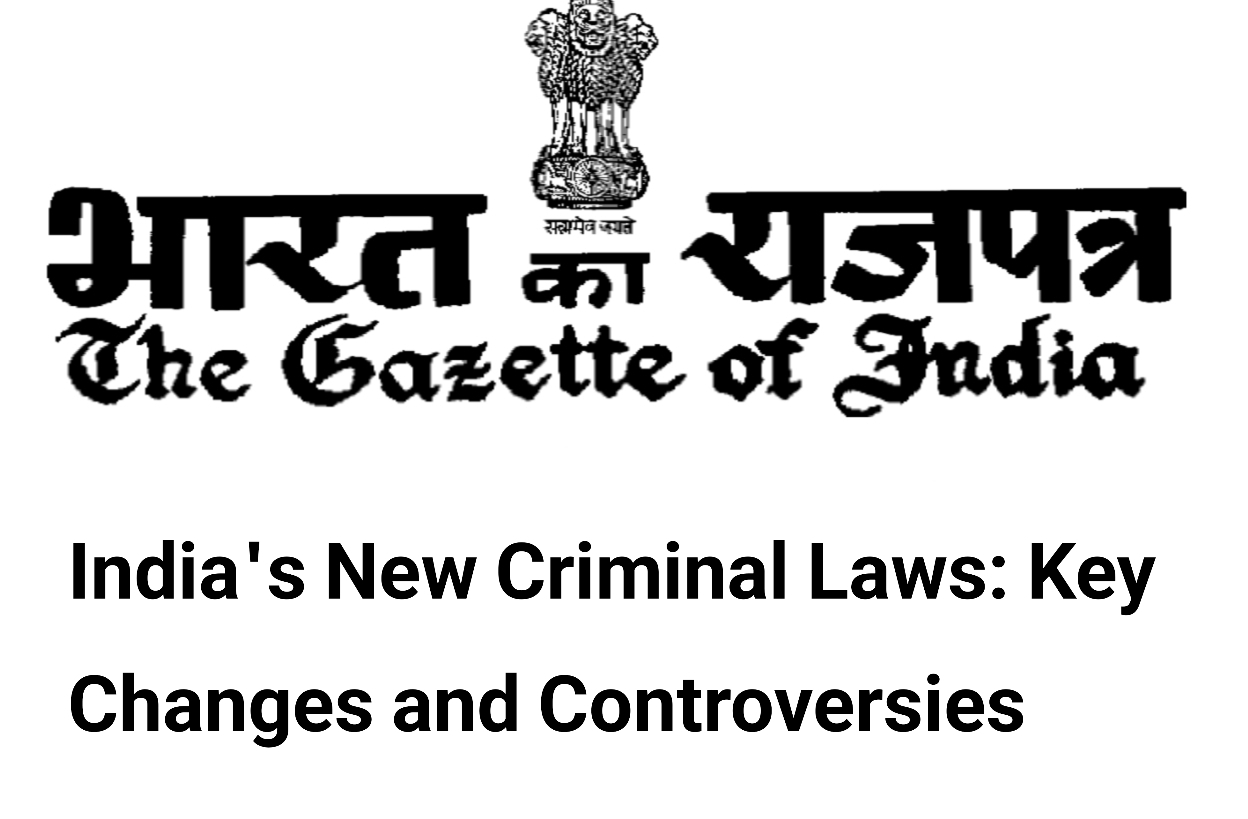India's New Criminal Laws: Key Changes and Controversies
On July 1, 2024, India replaced its colonial-era criminal laws with three transformative legislations aimed at modernizing the legal and judicial system. These new laws, introduced by Union Home Minister Amit Shah and approved by the President in December 2023, are:
---
1. Bharatiya Nyaya Sanhita (BNS): Replacing the IPC
The Bharatiya Nyaya Sanhita (BNS) substitutes the Indian Penal Code (IPC) of 1860, focusing on:
Enhanced Cybercrime Provisions: Expanding the scope to tackle digital and emerging crimes.
Revised Punishments: Addressing modern criminal dynamics with stricter penalties for heinous offenses.
Gender Inclusivity: Proposed future amendments aim to recognize sexual crimes against men and transgender individuals.
Concerns: Critics point out certain sections reflect outdated societal views, particularly regarding women’s rights, and expand police powers, which could affect civil liberties.
---
2. Bharatiya Nagarik Suraksha Sanhita (BNSS): A New CrPC
The BNSS replaces the Code of Criminal Procedure (CrPC) of 1973, focusing on:
Streamlined Judicial Processes: Accelerating trial proceedings to reduce case backlogs.
Retroactive Application of Section 479: This clause applies to undertrial cases, potentially impacting ongoing trials.
Empowered Policing: The new provisions grant police broader discretionary powers, including the authority to handcuff under specific conditions.
Concerns: Legal experts highlight that unchecked police authority could lead to misuse, risking individual freedoms.
---
3. Bharatiya Sakshya Adhiniyam (BSB): Redefining Evidence Laws
The BSB replaces the Indian Evidence Act of 1872 and addresses the challenges of modern evidence management:
Admissibility of Digital Evidence: Streamlines the process for using electronic records in courts, requiring expert certification.
Improved Conviction Rates: By incorporating advanced evidence-gathering techniques.
Concerns: Cyber laboratories may face an increased workload, potentially delaying justice.
---
Key Issues Surrounding the New Laws
1. Lack of Transparency: The drafting process, conducted by a five-member expert panel, has been criticized for limited public consultation.
2. Potential Misuse of Police Powers: Expanded discretionary authority raises concerns about civil liberties.
3. Incomplete Reforms: While progressive, the laws fail to address some critical gaps, such as a dedicated focus on crimes against marginalized genders.
---
Conclusion
India’s new criminal laws mark a significant step toward modernizing the justice system. However, their success depends on addressing concerns about transparency, fairness, and potential misuse of expanded police powers. Proper implementation and public awareness will be crucial in ensuring justice, efficiency, and the protection of civil liberties.


Post a Comment